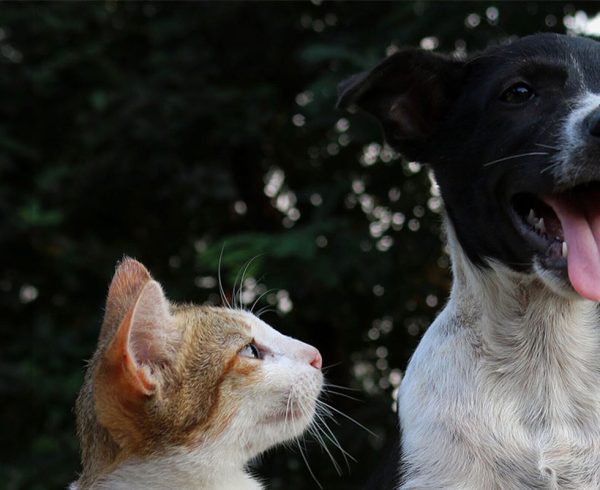It is not uncommon for pet owners to
experience behavioural issues with their pet.
However, many aren’t aware that their veterinarian can help.
Much of your pet’s behaviour exists because its previous experiences have taught it that in
this situation this is the best way for it to behave.
Your vet can help by giving you the skills to teach your pet another way to behave that is more
worthwhile than their current behaviour.
As with most things, early intervention is the key, so consulting your vet about a behavioural
issue straight away will make things much simpler and easier for you and your pet.
How to deal with your dog
Many owners have questions about their dog’s behaviour. Below is some general advice
about how to handle some of the common behavioural problems in dogs, including
barking, aggression, boisterous behaviour, destructive behaviour and toilet training.
Barking – barking is a normal way that dogs communicate
with others. Dogs bark to get attention, during play, hunting,
herding, territorial defence, threatening displays and fearful and
anxious situations.
Understanding why your dog is barking is essential to
controlling problem-barking, which is the most common
complaint we hear from dog owners. Your vet can help you
identify the reason your dog is barking and provide advice
about how to control it.
Aggression – many clients ask how to control aggressive
behaviour in their dog. It’s important to remember that
aggression is a normal behaviour expressed by dogs in a wide
variety of situations.
All questions about aggressive behaviour need to be dealt with
professionally by a veterinarian so that a full work-up can be
performed. If the dog is deemed to be abnormally aggressive
then a detailed and comprehensive management and
treatment plan will be required.
Boisterous behaviour – this is often a sign of ineffective
training, but it can occasionally be due to a neurochemical
abnormality. To determine the best treatment for your dog, you
should consult your veterinarian so that they can perform a
comprehensive behavioural work-up.
Destructive behaviour – dogs do not destroy things
vindictively, but there are many other reasons your dog may
be destructive including, boredom, inadequate exercise,
investigation of environment, anxiety, fear or phobia.
You vet can often help to resolve this type of behaviour
relatively easily, however if the problem is more serious your
dog may require a program of environmental management,
behavioural management and possibly medication.
Toilet training – issues with toilet training in dogs can be
caused by simple things like ineffective and or inconsistent
training, but it can also have its roots in a behavioural problem
like anxiety, fear or phobia, or a medical issue, such as cystitis,
renal disease or parasitism. Visit your vet so that they can give
your dog a comprehensive medical and behavioural work-up
before the toilet training is instigated.
How to co-exist with your cat
Hunting
In co-existing with us, cats can sometimes develop
behaviours that may cause problems for their owners. The
most common problems we see in cats include spraying
or eliminating on furniture and carpets, scratching
indoors, hunting, hiding and yowling.





